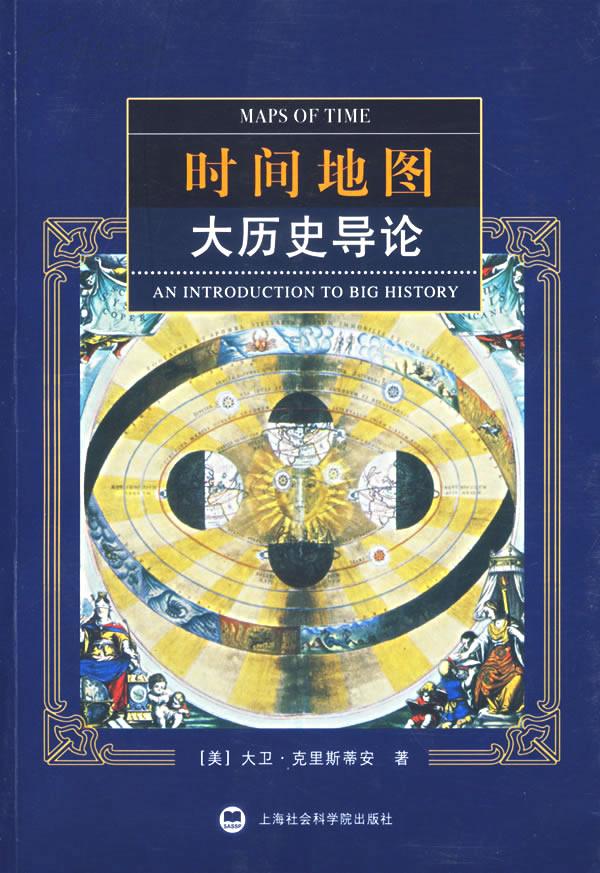‘Big history:' Important perspective of historical studies

Maps of Time: An introduction to Big History, written by Australian scholar David Christian, was published in2004. Studies of big history have been developing rapidly since then.
The concept of “big history” was first put forward by Australian scholar David Christian and refers to attempts to explore the past from an overarching perspective. Scholars said that this echoes the traditional Chinese idea of exploring relations between nature and humans, and that studies of big history have broad prospects.
New interdisciplinary perspective
Sun Yue, an associate professor from Capital Normal University, said that the notion of big history was not put forth in a complex context. In 1988, at a teacher workshop at the Department of History at Macquarie University in Australia, some scholars raised the question of “from what time should we talk about history?” Christian suggested starting from the very beginning. He chose the Big Bang of the universe 13.7 billion years ago as the starting point for narrating “big history.” In 1991, Christian first proposed and interpreted big history in his article “Defend Big History.” In 2004, his classic Maps of Time: An introduction to Big History was published. Studies of big history have been developing rapidly since then.
Li Xuetao, director of the Institute for Global History at Beijing Foreign Studies University noted that the concept of big history further refines academic specialization, and a large number of social and scientific methods have been introduced to historical research. “Studies of big history call for attaching importance to overall research once again as well as relevance between the whole and parts,” Li said.
Liu Yaohui, a professor from Chongqing Normal University, said that scientific advancements such as carbon dating, the discovery of DNA and the theory of slab structures have laid a solid foundation for the rise of studies of big history. Globalization and increasingly prominent environmental problems have promoted further advancement of the discipline, Liu said.
“In the past, historiographers all focused on human history and there were many obstacles between different disciplines as well as natural science and the humanities,” said Liu, adding that studies of big history have become an orientation of genuine interdisciplinary research, due to the mass absorption from the achievements of the history of science.
Contrasts to ‘long-period’ theory
In recent years, there has been a growing opposition to fragmented historical research and a call for historians to return to long-period research.
Studies of big history are viewed as a continuation of former grand historical narration. Christian was influenced by Fernand Braudel (1902-85), a French historian and a leader of the Annales School. He drew upon Braudel’s broad vision of history in his article Microscopic Historiography written in 2005. In addition, he listed Braudel’s Material Civilization, Economy and Capitalism, 15th-18th Century (1979) as one of the references for his major works Maps of Time: An introduction to Big History, Liu said.
Like Braudel’s long-period research, studies of big history require researchers in historiography to throw away narrow thinking and change their styles and attitudes to review the concept of historical time. The time scales used in studies of big history include long-period history, but they go back even further. Everything generated on the earth and the evolution of civilization are narrated based on science, Liu said.
Sun said that big history starts with the Big Bang and unfolds around eight epochs: the Big Bang, formation of the galaxy and initial chemical elements, generation of the sun, solar system and earth, birth of life, emergence of human beings, agricultural civilization and rise of early cities and countries and breakthroughs leading to modernity.
Chinese scholars’ research
Human history is entering a constantly changing era, when people will raise such questions as how to understand the rapidly changing world. Liu Xincheng, a professor from Capital Normal University said that it is necessary to first review history to answer those questions. Therefore, works of big history should all aim to discuss human conventions, explore the ways of and reasons for social transition, and describe and understand changes in the world, he said.
Some Chinese scholars have begun research on this aspect. Sun pointed out that Qi Tao and Ma Xin, professors from Shandong University, have consciously combined natural history with human history and drew new conclusions relating to floods and the birth of Chinese civilization. This research started about 30 years ago, earlier than the formal appearance of the Western concept of big history.
Sun asserted that Chinese historiography has a long tradition of exploring the relationship between nature and human beings, and many Chinese scholars are willing to participate in studies of big history. Liu Yaohui said that compared with world history, studies of big history extend back further and go beyond the concepts and methods of the traditional discipline of history.
Scholars said that problems like climate change, overpopulation, pollution, resource scarcity, nuclear proliferation and war are all beyond historiographers.
Zhang Junrong is a reporter at the Chinese Social Sciences Today.
